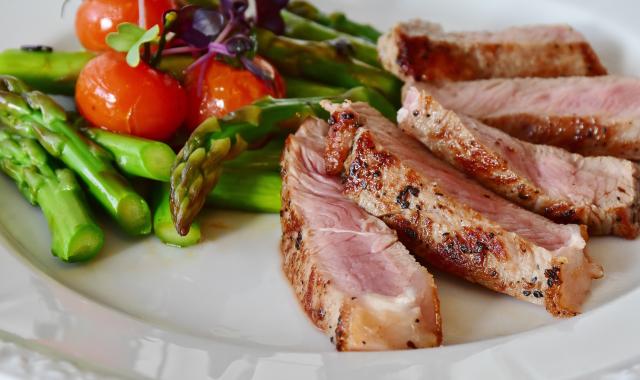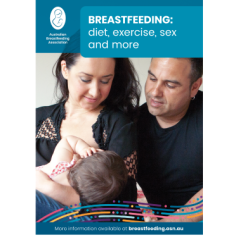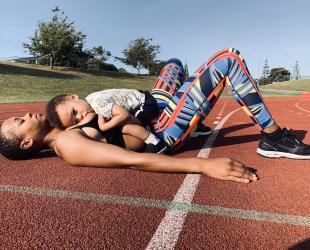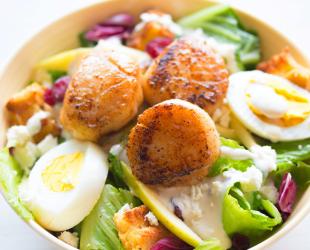Breastfeeding mums don’t need a perfect diet – here’s what really matters

You don’t need to eat perfectly to breastfeed your baby. What you eat matters more for your own health and energy than for your breastmilk or your baby. Even in places where food is limited, mums can breastfeed and their babies do well.
When you’re breastfeeding, your body needs extra energy and nutrients, which is why you might often feel hungry. You can help meet these needs by eating a little more of the foods you normally enjoy.
For most mums eating a typical Australian diet, the main nutrients to watch are iodine, iron, and calcium. If you’re vegan or eat very little animal food, vitamin B12 is also important.
- Iodine: Helps your baby’s brain and nervous system develop. It’s hard to get enough from an ordinary diet, even if you eat well. That’s why health authorities recommend a supplement for pregnant and breastfeeding mums.
For more information about iodine needs, see the National Health and Medical Research Council publication Iodine supplementation for Pregnant and Breastfeeding Women. - Vitamin B12: Supports your baby’s growth and nervous system. If you eat very little or no animal food, your levels may be low.
- Iron and Calcium: Iron keeps your energy up and helps prevent anaemia. Calcium supports your bones and teeth. If you eat little or no dairy, you’ll need to get calcium from other foods.
If you’re unsure whether your diet covers these nutrients, talk to your doctor or a dietitian. They can check your levels and suggest supplements if needed.
Staying hydrated
Breastfeeding uses extra fluid, so you might feel more thirsty. There’s no set amount you need to drink. It depends on things like the weather, your activity, and what you eat. Listen to your thirst and don’t ignore it just because you’re busy.
- Try keeping a glass of water or a water bottle nearby when you feed your baby.
- Carry a water bottle when you’re out and about.
Special diets
Vegetarian and vegan diets
If you follow a vegetarian or vegan diet, breastfeeding can still work well for you. The main thing to watch is getting enough key nutrients for both you and your baby.
- Vitamin B12 is especially important if you’re vegan or eat very little animal food. If you’ve been vegan for a long time, it’s a good idea to have your vitamin B12 levels checked. Your health professional can guide you on supplements if needed.
- Other nutrients to keep an eye on include protein, iron, calcium, and omega 3 fatty acids. A well planned diet usually covers these, but if you’re unsure, professional advice can help.
Dairy-free diets
Dairy foods are a main source of calcium in Western diets, and they also supply protein and vitamins A, B2 (riboflavin), and B12. If dairy isn’t part of your diet, it’s important to replace these nutrients with other foods.
A dietitian can help you find options that suit your needs and preferences.
Diets for medical conditions
If you have food allergies or a medical condition such as coeliac disease, you’re likely already managing your diet to suit your needs. As long as your condition is under control, breastfeeding can work well for you. It may even help protect your baby from developing these conditions.
If your baby has a food allergy or intolerance
Some babies are sensitive to tiny amounts of foods that come through breastmilk. Common allergies include cow’s milk, soy, wheat, eggs, peanuts, and tree nuts. Babies can also have food intolerances.
- If your baby seems unsettled or has symptoms, get professional advice to work out if they’re food-sensitive.
- It can be hard to figure out which foods are causing problems. Cutting out whole food groups can make it harder to eat a balanced diet.
- A dietitian can help you find the problem foods and make sure you’re getting all the nutrients you need.
Alcohol and breastfeeding
The safest option is not to drink alcohol while pregnant or breastfeeding. But with some planning, you may be able to have an occasional glass.
Further reading
The following resources are published by the Australian Government:
© Australian Breastfeeding Association December 2025
Read more about breastfeeding and your lifestyle
Evidence-led info and practical tips from our Parenting Information Series
Breastfeeding: diet, exercise, sex and more



